The Independent's journalism is supported by our readers. When you purchase through links on our site, we may earn commission. Why trust us?
Sourdough September: Everything you need to bake the perfect loaf, as recommended by experts
Master the art of bread making with these kitchen essentials
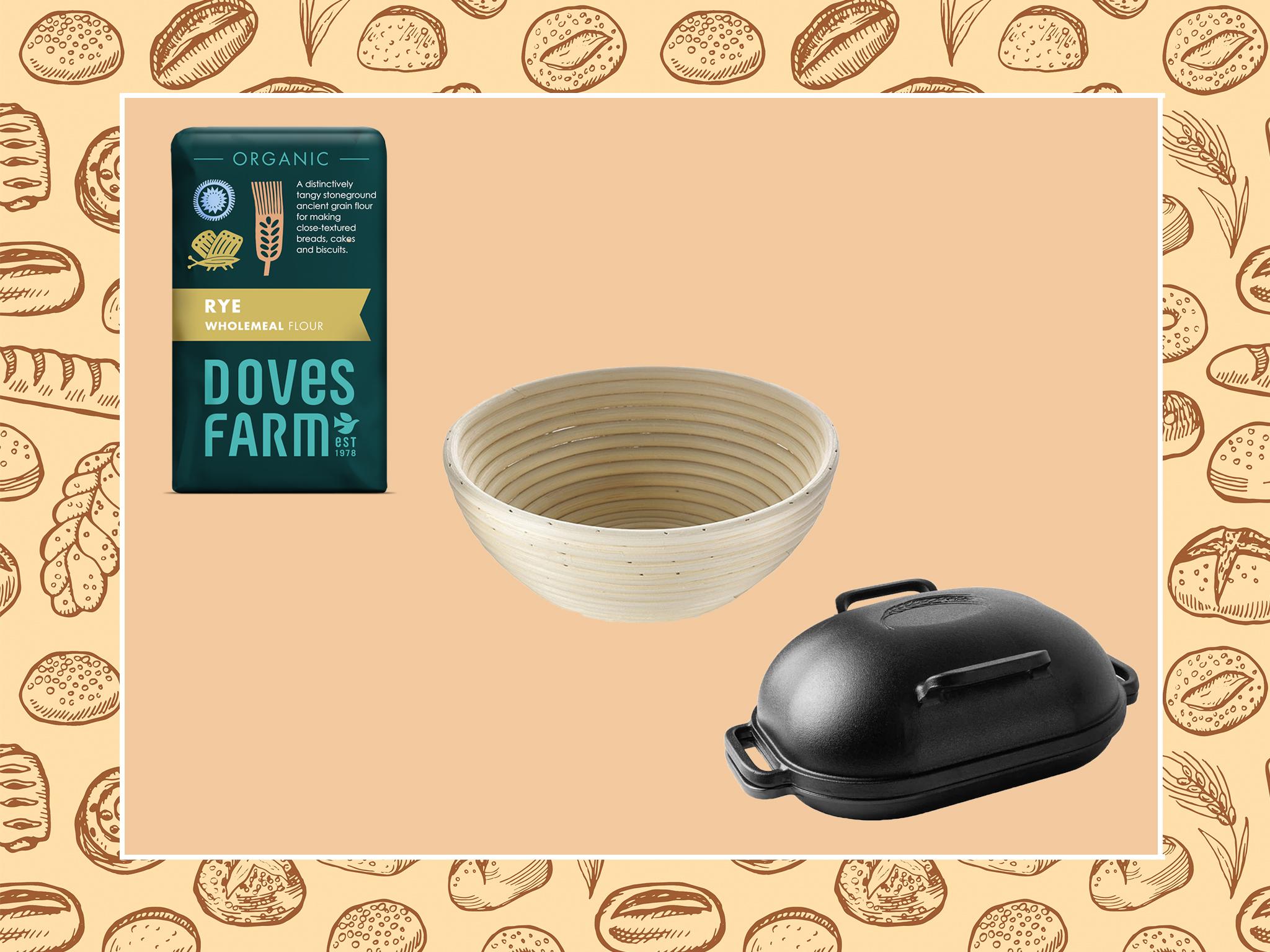
Your support helps us to tell the story
From reproductive rights to climate change to Big Tech, The Independent is on the ground when the story is developing. Whether it's investigating the financials of Elon Musk's pro-Trump PAC or producing our latest documentary, 'The A Word', which shines a light on the American women fighting for reproductive rights, we know how important it is to parse out the facts from the messaging.
At such a critical moment in US history, we need reporters on the ground. Your donation allows us to keep sending journalists to speak to both sides of the story.
The Independent is trusted by Americans across the entire political spectrum. And unlike many other quality news outlets, we choose not to lock Americans out of our reporting and analysis with paywalls. We believe quality journalism should be available to everyone, paid for by those who can afford it.
Your support makes all the difference.Lockdown in the UK saw many of us take up baking, with Instagram feeds full of banana bread recipes and sourdough starters.
If you didn’t make one yourself, you definitely know of someone who has, as we all sought out ways to occupy ourselves during months at home.
Whether you like slices toasted until golden brown and piled high with bruschetta, slathered in butter and brie or with a hearty spread of marmalade, sourdough is a loaf that pairs well with just about anything.
However, it is a bread that takes a bit of practice to perfect, rather than being a recipe you can whip up on your lunch break while working from home. That said, once you’ve mastered it, you can adapt to make savoury styles and tweak recipes to fit your taste buds.
This month marks Sourdough September, an annual event created by the Real Bread Campaign, an international initiative encouraging bread lovers to create and share bakes. As 2020 marks the event’s eighth year, it’s a time to celebrate all things sourdough and explore all the possibilities of baking with it.
Ways you can get involved this year include organising local baking events in your community, sharing pots of sourdough starter or, if you’re a business, joining forces with a local brewer, pickler or cheesemaker to create something special for customers.
To celebrate everyone’s favourite bread, you can try your hand at making your own loaf, with our expert-led guide on how to get started and the tools you need.
You can trust our independent round-ups. We may earn commission from some of the retailers, but we never allow this to influence selections, which are formed from real-world testing and expert advice. This revenue helps us to fund journalism across The Independent.
Ingredients
Jack Sturgess, professional chef turned bread maker and Channel 4’s Sunday Brunch bread expert, points beginners to his recipe here, with details on how to fold your dough, how many times it needs folding, proving, shaping and the baking process.
Sourdough is made up of just three ingredients – flour, water and salt – and Sturgess told The Independent that organic flours are a total game-changer.
“My go-to brand is Doves Farm organic. I use its wholemeal rye flour (Doves Farm, £2 for 1kg) for my starter, it makes it super robust and able to withstand neglect, plus it brings amazing flour to the final bread.”
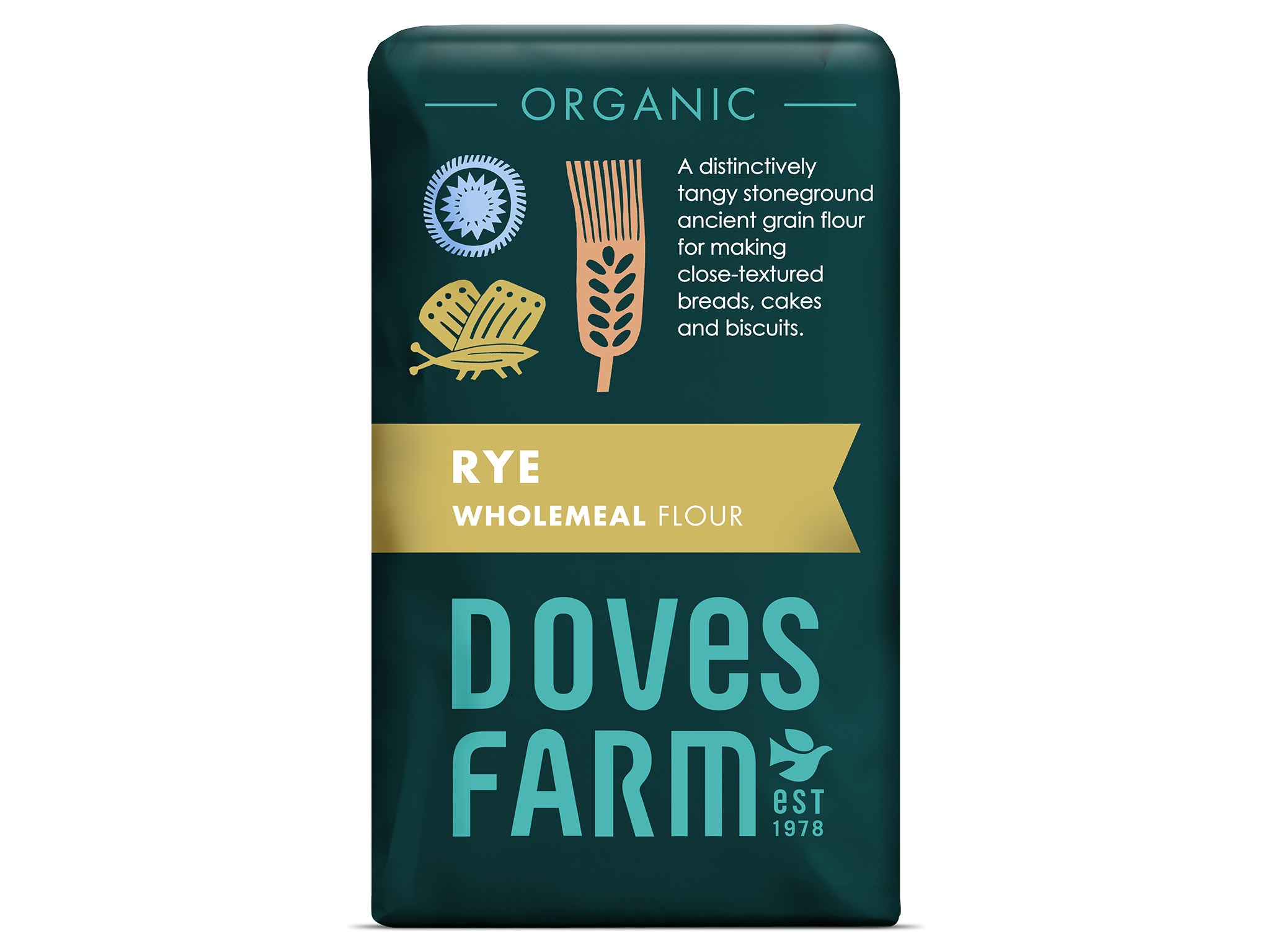
For the final dough, the baker uses strong white bread flour (Doves Farm, £2 for 1.5kg) that’s both Soil Association and Kosher certified.
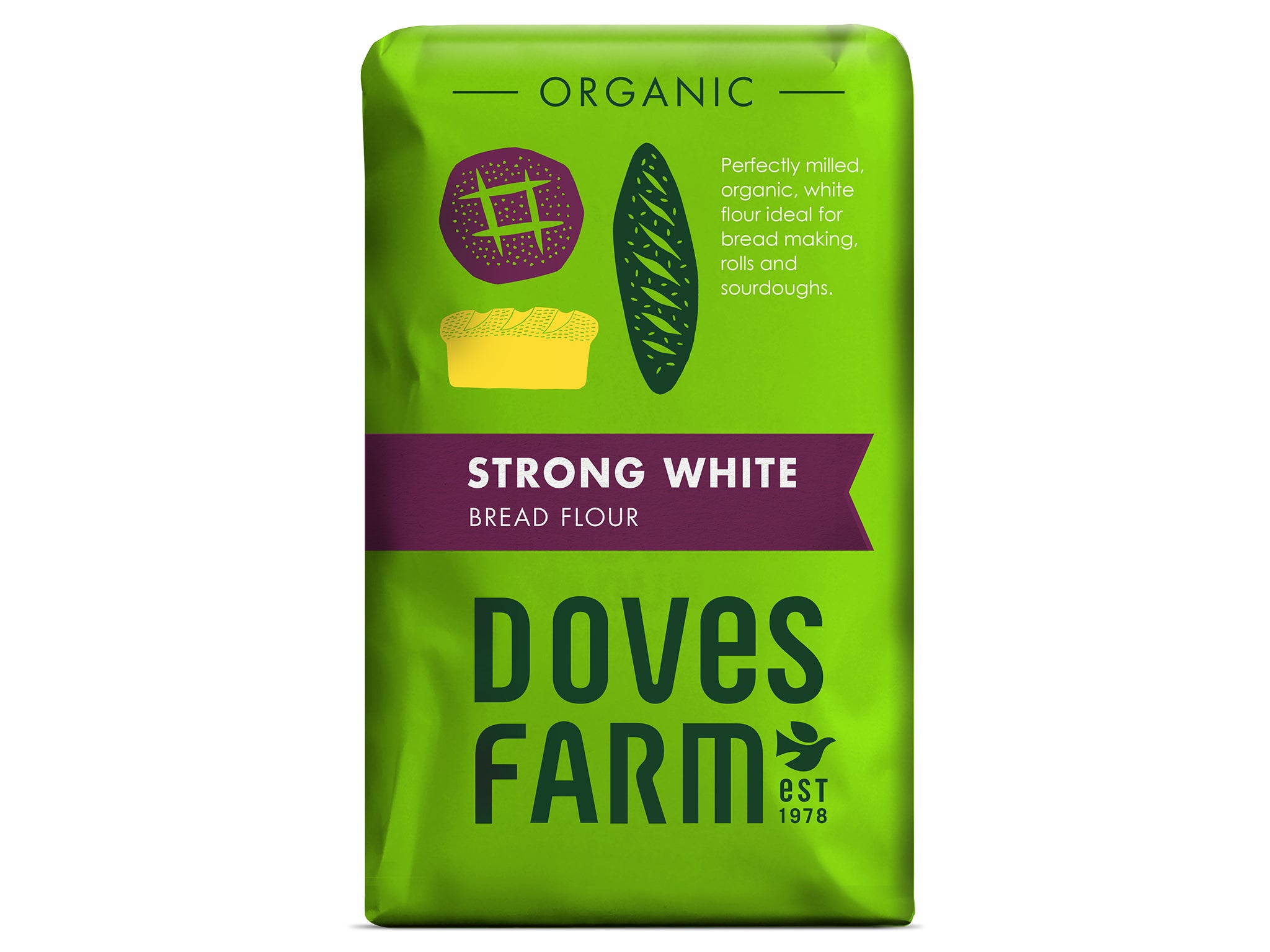
Martha De Lacey, baker and teacher at The Muff Kitchen, says her top tip for first-time sourdough bakers is to follow one recipe or method and stick to it.
“All methods vary slightly and you’ll only get confused if you start by reading 15 different recipes! Also, practice makes perfect,” she says.
Dough scraper
Both De Lacey and Sturgess advocate using a dough scraper.
“I use it for mixing, cutting the dough, scraping it from the side and out of the bowl, lifting it from the table when it’s sticky, cleaning the table, literally everything. Without it I’m not sure what I’d do,” says Sturgess.
Inexpensive and easily available, he recommends this Bake With Jack dough scraper (Bake With Jack, £3) that’s made from recyclable food grade polypropylene.
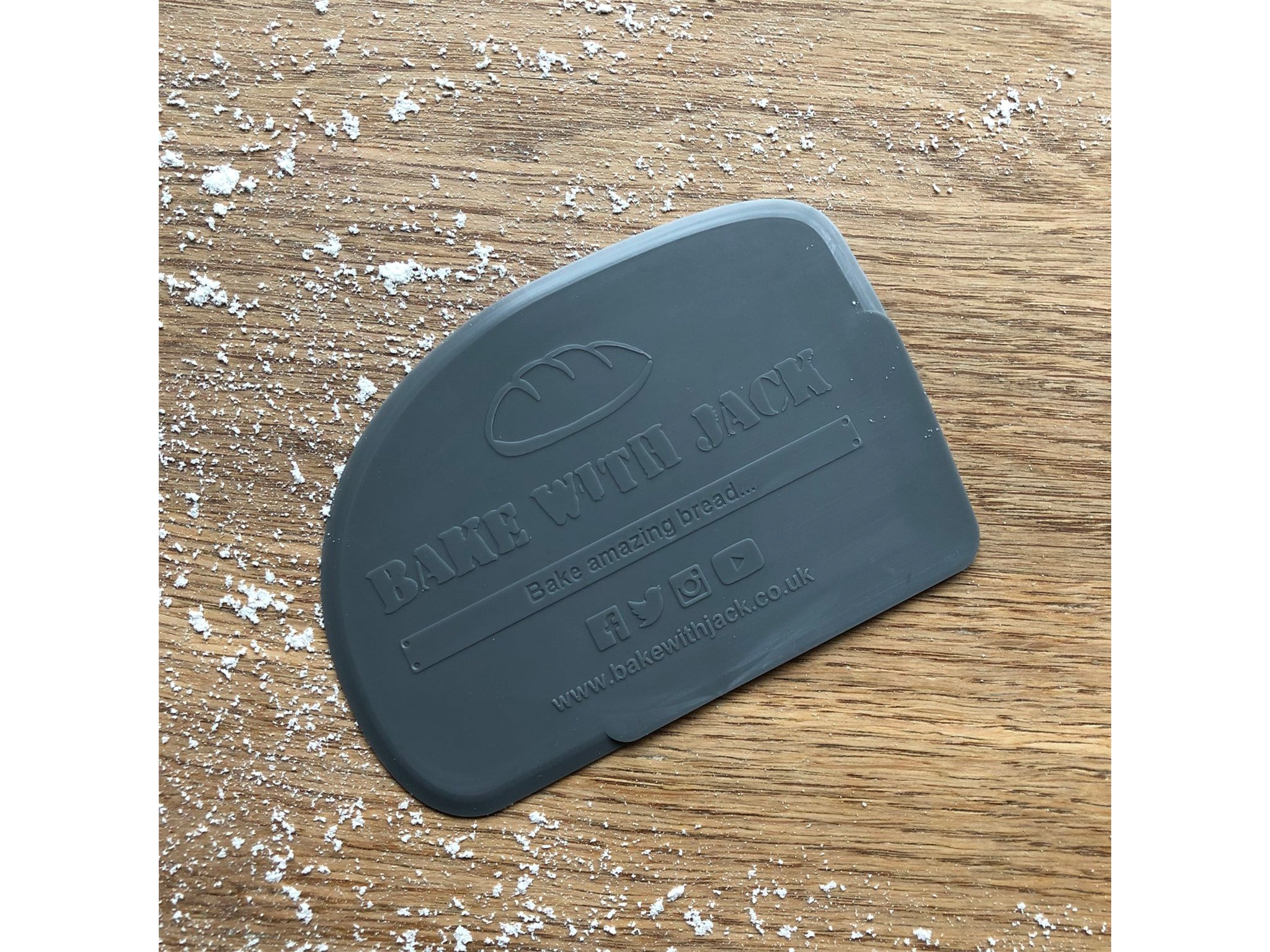
It has two straight edges for cutting and scraping, and a third, curved edge to unstick bread from your bowl.
Water spray bottle
When you add flour to your recipe to stretch and fold the dough, it will dry and tighten up, making it harder to work with.
To prevent this, Sturgess suggests using a water spray bottle instead of flour. “Water keeps the dough from sticking to the table and I feel much happier adding additional moisture over flour each time,” he says.
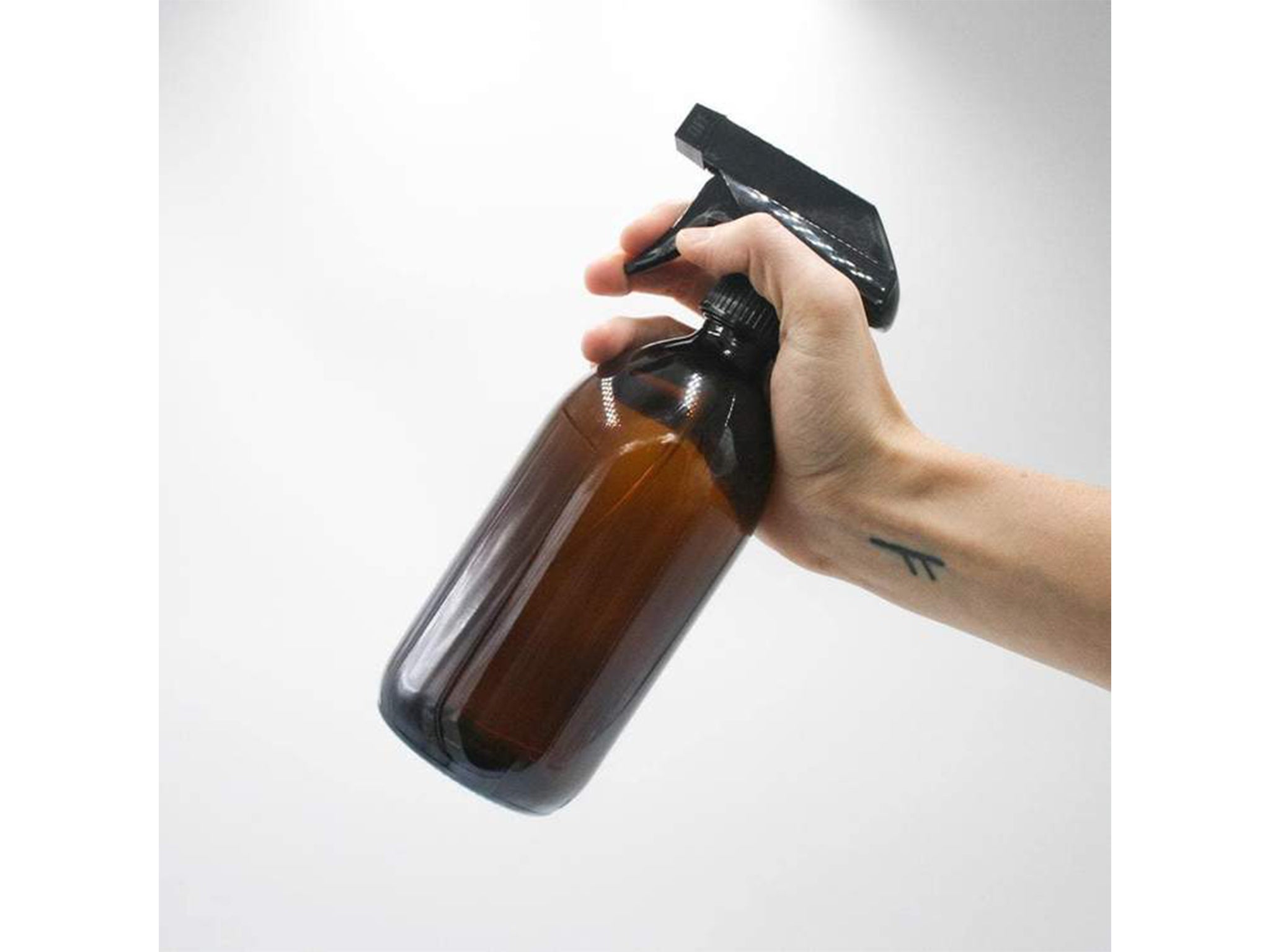
Grab this glass spray amber bottle (Eco Vibe, £3.99) that will help your bake without adding to single use plastic waste, as it’s made from glass with a recycled plastic pump.
Breadbasket
Sturgess explains that you’ll want a breathable basket to hold the final shape of your dough, whether that’s a baguette or round, as it rests in the fridge overnight before you bake it the following morning.
“It will allow the skin on the outside of your dough to dry out, helping the loaf keep its shape, while making it easier to score before baking and less prone to sticking to anything. It will also create the foundation of your crust to get that perfect ‘ear’ on top of your final loaf,” he says.
We love this round homemade bread dough proving basket (Lakeland, £10.99) if you’re opting for a circular shape.
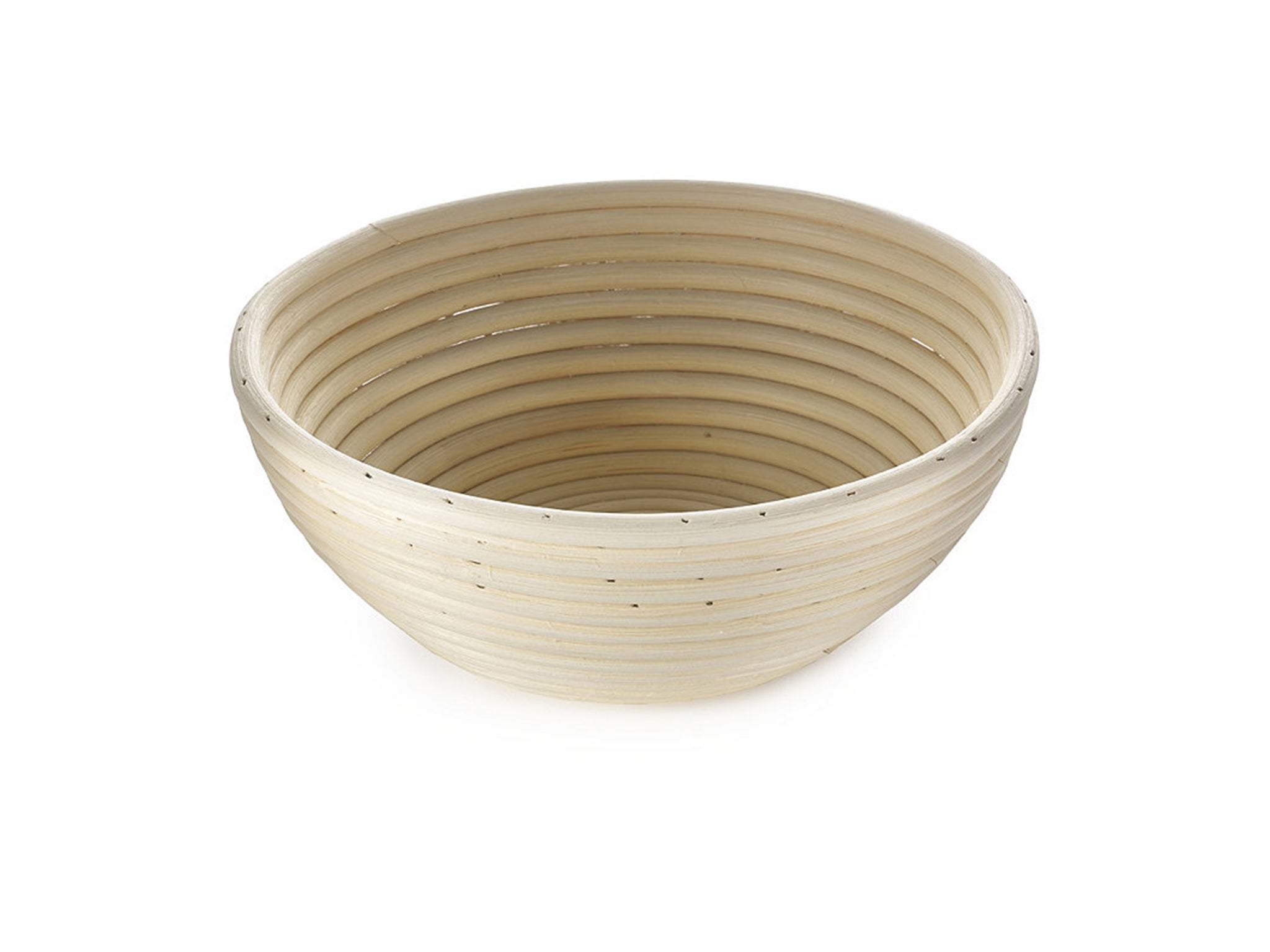
It’s made from rattan and will award your loaf a pretty spiral pattern – a nice artisan touch to impress dinner guests with.
If you’d prefer a longer, stretched out style that can be cut up into smaller pieces once baked, try this Schneider oval bread proving basket (Nisbets, £19.99) instead.
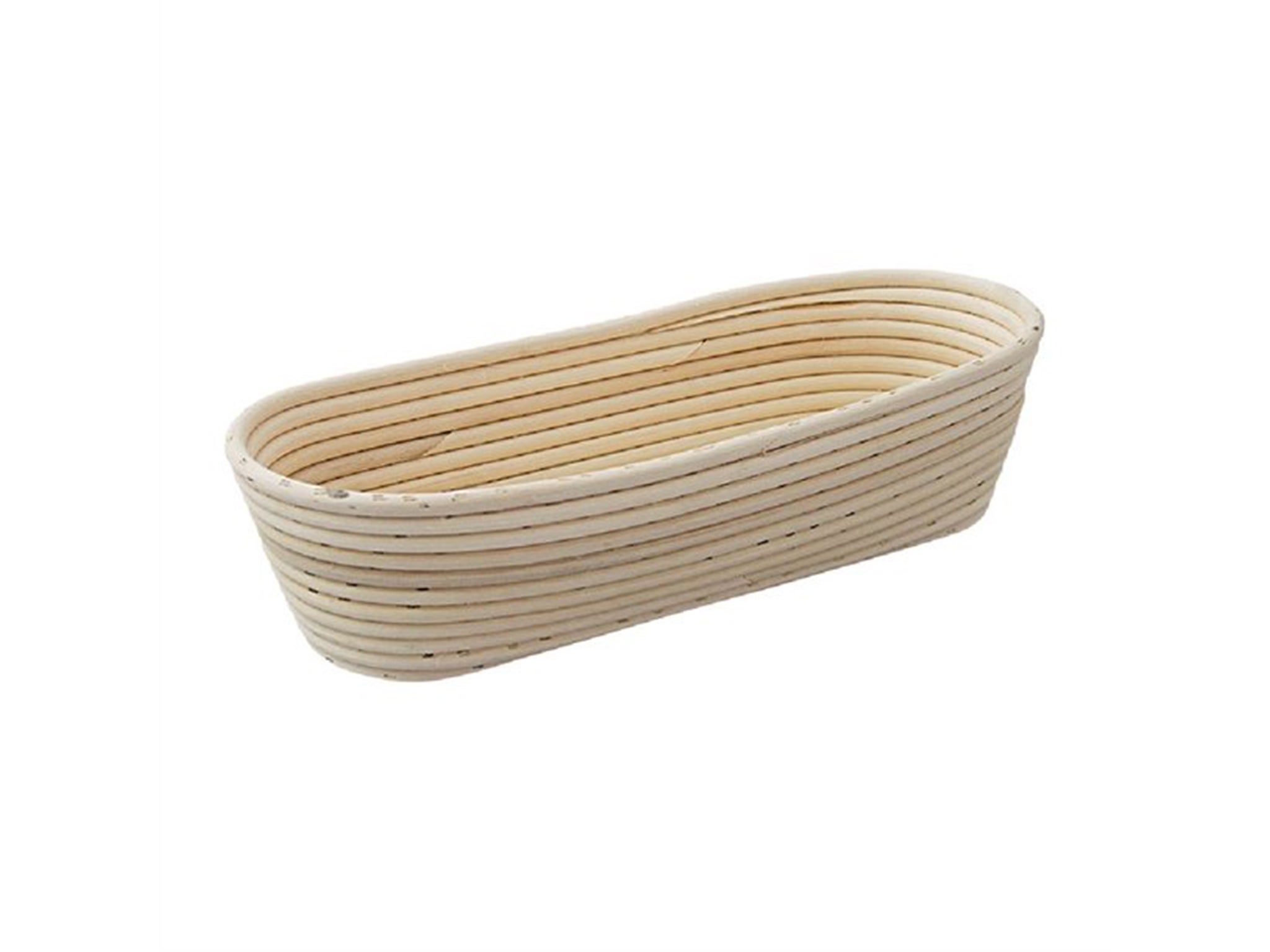
Made from the same material, the shape is much better for tearing and sharing.
To clean it, the brand recommends using a hard brush and cold water before drying it by putting it in the oven for a short period to ensure any mould or bacteria is eliminated.
Cast iron pot
De Lacey shares that her favourite, and essential, tool when baking sourdough is a Challenger bread cast iron pan (Bakery Bits, £283.26).
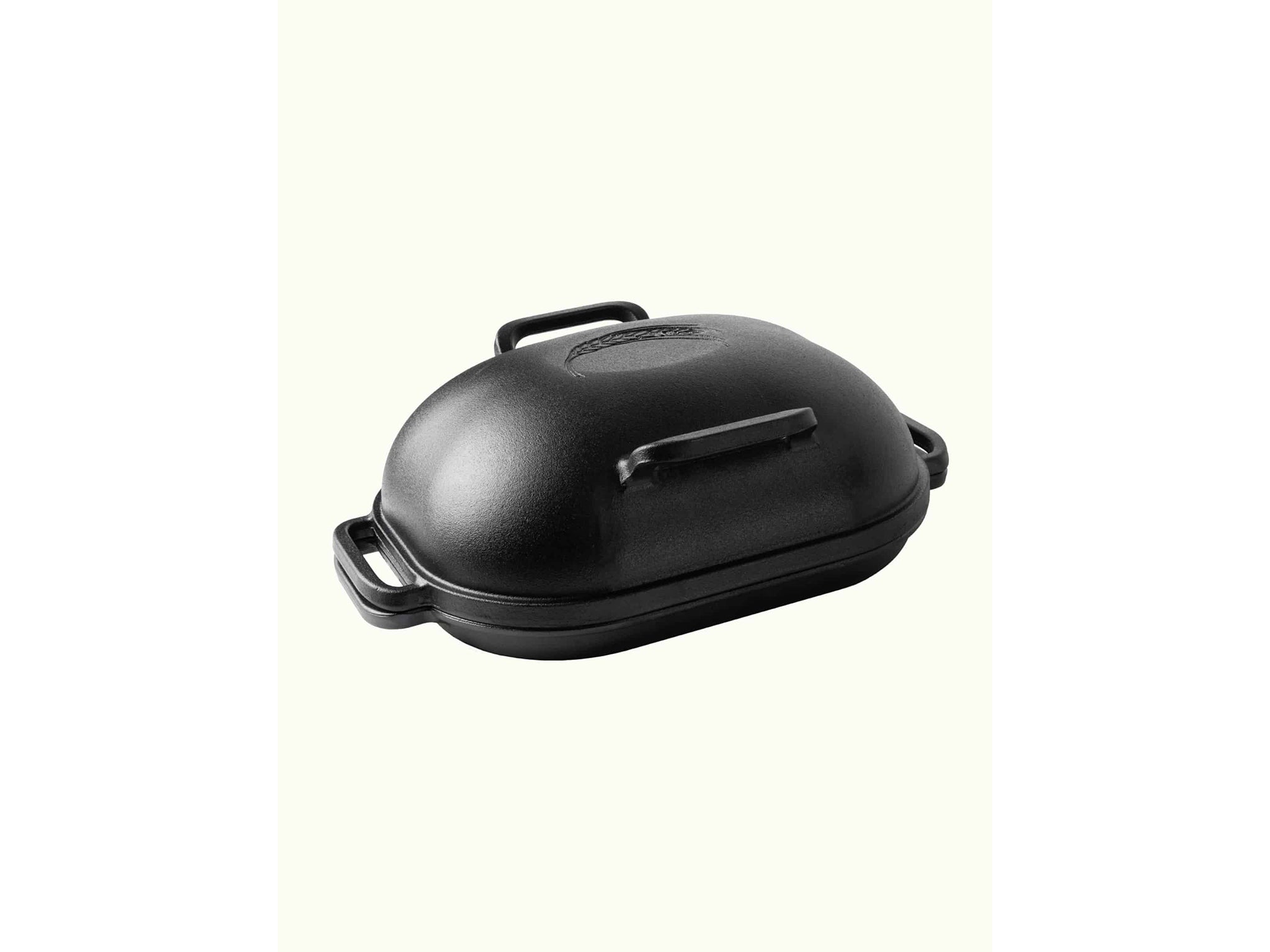
The shape allows you to create a varied range of loaves, from batards and boules to baguettes, and the pan ensures a constant temperature to help your bread bake evenly throughout.
She also recommends this Lodge 4.7L cast iron pot (Amazon, £58.36).
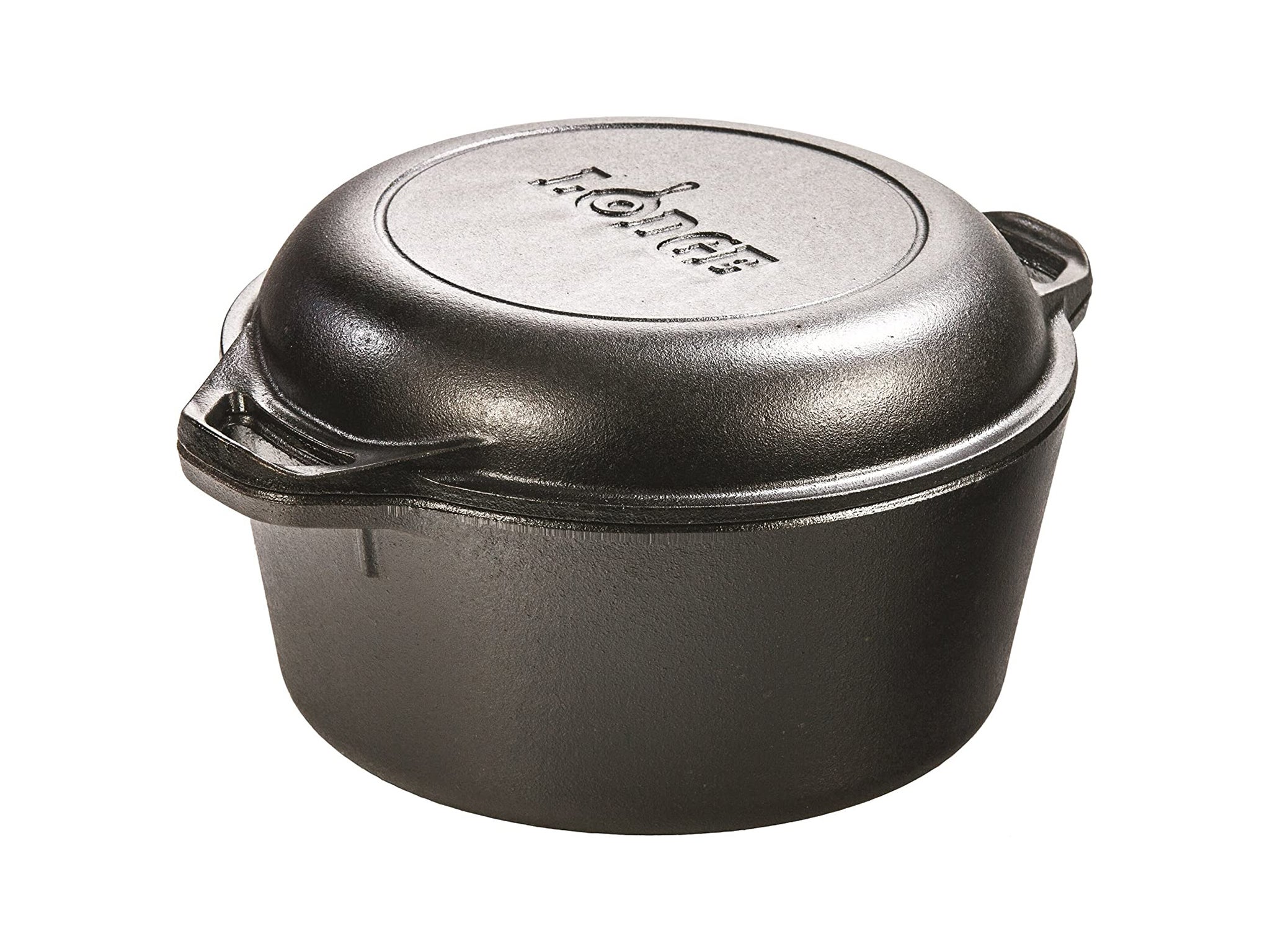
While a weighty piece of equipment, it has integrated side handles on the base and lid for easy lifting.
Once you’re done baking your bread, it can also be used to sear, fry, saute and roast other dishes.
For more reviews, read our round-up of the best bread bins
Voucher codes
For the latest discounts on kitchenware and other home offers, try the below links: